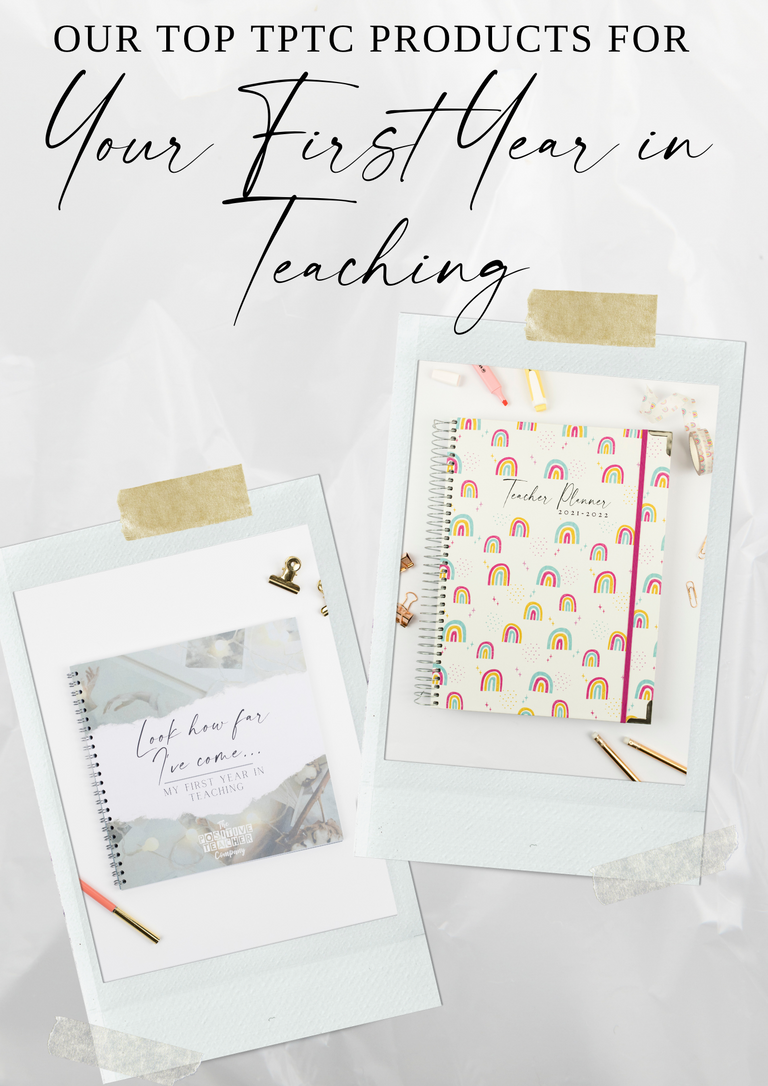As teachers, we’re in the habit of putting others first. We’re great at looking out for the wellbeing of our students, but among all of the planning, marking, meetings, and everything else on the endless To Do list, it’s easy to forget about your own wellbeing. Here at The Positive Teacher Company, we’re all about adding bits of joy into everyday things – we know we’re not alone in thinking that planning out your week is just a little bit nicer if you get to do it in a pretty planner! So today we want to encourage you to take a second and check in with yourself and how you are doing. We want you to look after yourself and your wellbeing, so here are 5 ways you can do that.
#1 Start as you mean to go on
Set yourself a wellbeing goal! We have goal setting pages in our Teacher Planners which you can fill out at any time. Sure, January is a great time to set new goals for the year (or September, if you operate better on the school year!) but really, there’s never a wrong time to set a goal to take better care of yourself. Think carefully about something you could do or change in your life that would help with your wellbeing, and be realistic – start small an you can build from there.
#2 Prioritise your To Do list
Ever heard of Eisenhower’s Matrix? It’s a great way to manage your tasks, and it involves deciding whether a task is important or not, and whether it is urgent or not, and planning your time accordingly. You may even find that you can just forget about tasks in the ‘not important and not urgent’ category and just cross them off your list. It can also allow you to identify things that are important, but don’t have an urgent deadline – these are easy to forget about when you have other urgent things to do, but they’re important, so you can make sure to schedule in a time to do these tasks.
#3 Delegate what you can
Teachers are responsible for so many things and it can often feel quite isolating. Managing the education and wellbeing of an entire class of students can feel like a lot to do alone, but try to seek out opportunities for support and delegate some tasks. If you have a Teaching Assistant in your class, even if not every day of the week, see if it’s possible to ask them to do some of your tasks. The Eisenhower Matrix suggests doing this with tasks that are pretty urgent but that don’t require your specific skill set. Tasks like sorting worksheets, sticking things into books, and preparing classroom displays are great tasks to delegate.

(Image from Asana)
#4 Do don’t things because ‘it’s easier to do it myself’
It can be so easy to look at a task that someone else could do, and think about how you’ll explain to them how you want the task to be done, and come to the conclusion that it’ll just be easier to do it yourself. First, your colleague might have done the task before or know more than you think, so it may not take as much explanation as you think. Second, if the task is something that will need to be done again, it is so worth putting in the time now so that next time, they can just get straight on with the task and you don’t have to worry about it. Even if it doesn’t seem like it’ll save you much time, knowing that someone else is taking responsibliity for something and taking it off your plate can do great things for your mental wellbeing and stress levels.
#5 Don’t be afraid to say no
The problem with being a teacher is there is always more you could be doing. If (try to imagine it) a teacher had a spare hour in the day, they could easily come up with something to fill it. It’s important to remember that it is okay to say no, especially when you are overwhelmed already. If you want to say yes to a task because it might be good to have on your teacher CV, take a minute to make a list of everything you are already doing that will look good on your CV (or make the list on your head!). Do you really need to add a lunchtime club to that, or do you have enough positive things going for you already? Saying no can make us feel guilty, but try to reframe your thinking. Saying no to an extra task will mean you’re not taking time away from your existing tasks, so you’re able to put your time into those things.
Being a teacher can be a real balancing act, and learning how to balance it is a real skill that can take time to develop. We’re here to support teachers, and we’d love to hear your tips on putting your own wellbeing first as a teacher!



